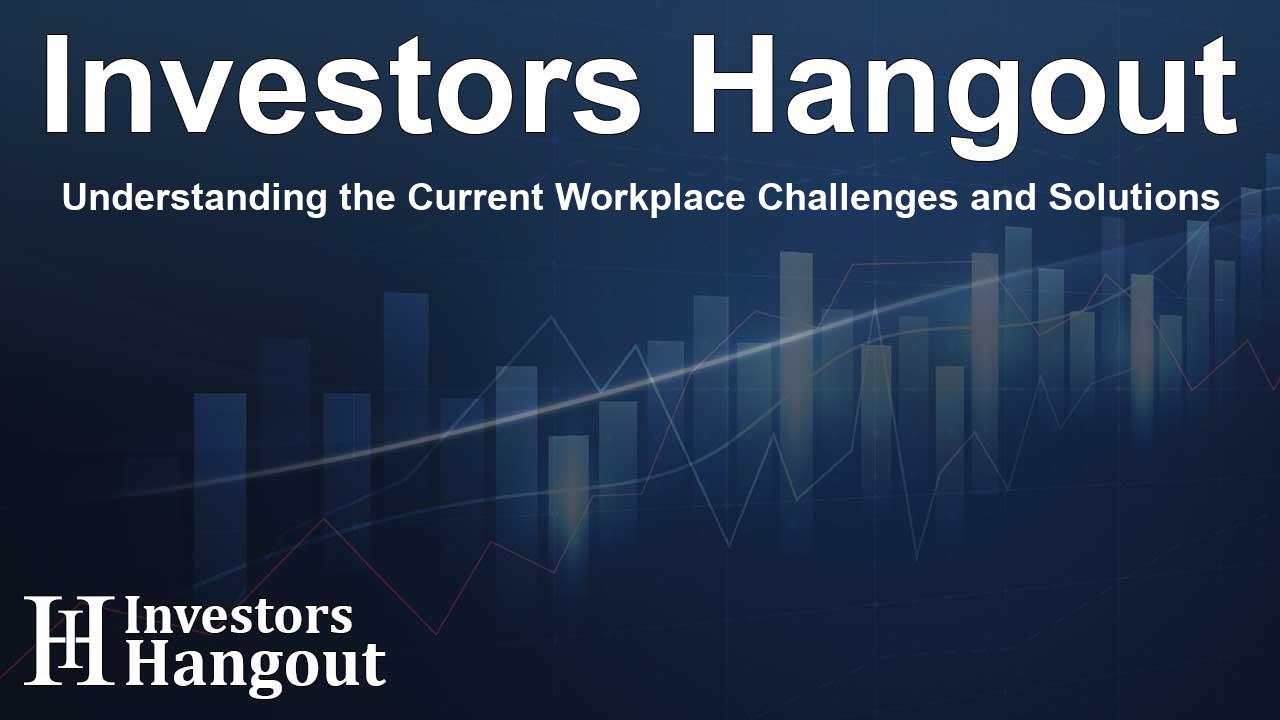Understanding the Current Workplace Challenges and Solutions

Understanding Workplace Challenges in Today's Environment
In the contemporary work environment, organizations are confronting a serious combination of pessimism, uncertainty, and disconnect that threatens not just productivity, but also the overall well-being of employees. Recent findings from meQuilibrium (meQ) demonstrate that this trifecta has reached critical levels, necessitating focused attention and strategic approaches to combat its detrimental impacts.
The Critical State of Employee Well-Being
According to meQ's recent research, which involved a detailed analysis of 5,477 employed individuals, it has become evident that a significant portion of the workforce is facing severe psychological challenges. Many employees report feeling a heightened sense of pessimism, citing feelings of distress related to various aspects of their lives—particularly the state of the economy, their work situations, and financial status.
The statistics are alarming: Nearly 67% of participants indicated they feel worse when thinking about the broader social and economic climate, with 35% feeling a decline in their own work situations, and 49% expressing concern regarding their personal finances. Furthermore, forecasts for improvement are bleak, as 52% anticipate worsening conditions in the future.
The Direct Impact on Productivity
Dr. Brad Smith, Ph.D., Chief Science Officer at meQ, emphasizes the idea that workplace pessimism goes beyond mere complaint; it poses a substantial threat to both individual productivity and organizational health. His insights reveal that employees who exhibit pessimistic outlooks may experience a staggering 60% decrease in productivity levels and face a 128% increased risk of depression.
Unraveling the Roots of Workplace Disconnect
Pessimism interlaces with other significant issues such as disconnect, which can arise from factors like workplace burnout and unfulfilled expectations. These elements create an environment devoid of trust, where more than half of employees report symptoms of disconnect, leading to a formidable 66% decline in productivity among those most affected.
Understanding the Gap in Stress Perception
The meQ study has further illuminated the perception gaps surrounding employee stress levels. A notable discrepancy exists wherein 42% of employees identify their own uncertainty-related stress, yet an alarming 63% believe their colleagues are struggling with similar challenges. This observation suggests a commonly underreported condition where employees may fail to acknowledge their stress while clearly recognizing it in others.
Adopting Resilience Strategies to Combat VUCA
Fortunately, meQ's study has uncovered powerful strategies that can serve as buffers against the chaos of VUCA—volatility, uncertainty, complexity, and ambiguity. Key methods include the practice of emotional management, fostering realistic optimism, and sourcing empathetic leadership. Those who develop strong emotional control are less likely to experience overwhelming stress and can navigate uncertainties more effectively.
Dr. Smith posits, "In these turbulent times, catering to mental resilience is not only beneficial but essential for workplaces. Improving skills in emotional control and empathic leadership can significantly shield individuals from the negative impacts of pessimism and uncertainty. Even when challenges abound, there is potential for growth and flourishing through these strategies."
Targeting Specific Demographics
The findings reveal that the burden of pessimistic sentiments is not uniform across demographics. Younger employees, specifically those belonging to Gen Z, along with individuals in governmental roles, exhibit notably higher levels of disillusionment compared to their counterparts in other industries and age brackets. This variance invites organizations to tailor their responses and support mechanisms to meet the particular needs of different groups within the workforce.
About meQ
meQ stands at the forefront as a leader in workforce resilience expertise, renowned for developing the first AI-driven predictive tool aimed at assessing workforce risk. Its commitment to enhancing employee well-being aligns closely with the dynamic challenges faced in modern workplaces, offering solutions that empower individuals and organizations alike.
Frequently Asked Questions
What are the main findings of meQ's research?
meQ's research highlights the critical levels of pessimism, uncertainty, and disconnect among employees, significantly impacting productivity and well-being.
How does pessimism affect workplace productivity?
Pessimism can lead to a reduction of over 60% in productivity and significantly increase the risk of mental health issues such as depression.
What solutions does meQ provide to combat these challenges?
meQ emphasizes the importance of emotional control, realistic optimism, and empathetic leadership to improve resilience in the workplace.
Which demographic is most affected by workplace pessimism?
Research indicates that Gen Z employees and those in governmental positions display higher levels of pessimism compared to other age groups or sectors.
Why is it essential to address mental well-being in the workplace?
Addressing mental well-being is crucial as it directly influences employee engagement, productivity, and overall organizational health.
About The Author
Contact Evelyn Baker privately here. Or send an email with ATTN: Evelyn Baker as the subject to contact@investorshangout.com.
About Investors Hangout
Investors Hangout is a leading online stock forum for financial discussion and learning, offering a wide range of free tools and resources. It draws in traders of all levels, who exchange market knowledge, investigate trading tactics, and keep an eye on industry developments in real time. Featuring financial articles, stock message boards, quotes, charts, company profiles, and live news updates. Through cooperative learning and a wealth of informational resources, it helps users from novices creating their first portfolios to experts honing their techniques. Join Investors Hangout today: https://investorshangout.com/
The content of this article is based on factual, publicly available information and does not represent legal, financial, or investment advice. Investors Hangout does not offer financial advice, and the author is not a licensed financial advisor. Consult a qualified advisor before making any financial or investment decisions based on this article. This article should not be considered advice to purchase, sell, or hold any securities or other investments. If any of the material provided here is inaccurate, please contact us for corrections.
